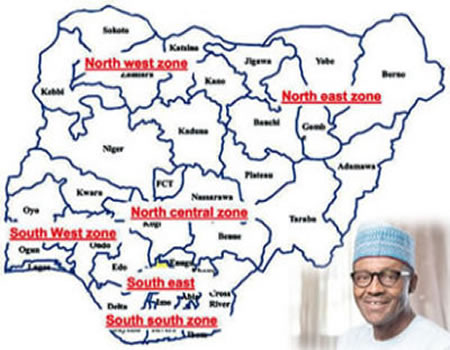Worried by pervasive insecurity in their domains and in the bid to up the ante of security strategies, state governments across the country have, in recent times, been making frantic efforts to obtain necessary safety and security clearances to launch remotely piloted aircraft (drones). However, they have been facing bottlenecks, seemingly circumscribed by the very strict conditions stipulated by the Federal Government through the agencies responsible for granting them approval to deploy the facility. Already, states like Anambra, Kaduna, Lagos, Osun Ondo, Ebonyi and Enugu, among others, have spoken of their desire to acquire drones and initiated moves to actualise that objective. In particular, the move was dictated by the reign of terror unleashed by nomadic herdsmen across the country. In the South-West states, movement on major highways has in recent times become a nightmare as the herdsmen waylay motorists, shooting sporadically at their vehicles and attacking them with machetes. According to the chilling details provided by survivors, the herdsmen subject their victims to torture, rape and bodily injuries. Often, they have raped wives right in the presence of their husbands and daughters in the presence of their parents, taking drug-induced turns on their hapless victims before collecting ransoms from the families of their distraught victims.
In the face of the security challenges faced by the states, though, the Federal Government has stuck to its guns, insisting that the intending state governments must pass through the medley of agencies governing the country’s airspace and the deployment of arms and ammunition. Under the current arrangement, no state government, agency, organisation or individual is allowed to launch a drone for any reason without obtaining approval from the Nigerian Civil Aviation Authority (NCAA), the agency regulating safety and security in the country’s civil airspace, and the Office of the National Security Adviser. Fully cognisant of the fact that drones are meant to monitor and record the activities and hideouts of criminals, the Ministry of Aviation and the NCAA have not failed to stress the point that drone deployment requires strict scrutiny, and that obtaining safety clearances is standard practice. While there are no indications that the states are unwilling to follow the laid down procedure, they have understandably felt hard done by the refusal of the Federal Government to give accelerated attention to their individual applications.
However, in our view, the core issue provoked by the state’s planned acquisition of drones is that of control. In other words, if and when the states acquire drones, under which agencies within their respective domains will they be placed? Truth be told, the Federal Government’s unspoken desire appears to be that they should be under the control and supervision of the Nigeria Police Force (NPF), the agency saddled with the country’s internal security. While, in the light of the current arrangement in the country, that is not an unreasonable expectation, the realities of national development would dictate that the issue of drone deployment, as indeed the larger issue of national security, should be decentralised. In these days when drones are being deployed in civilised climes to deliver goods and services, erecting undue bottlenecks in the way of states intending to use them to secure the lives and properties of their populations is not a reasonable measure. A critical analysis of the situation would immediately suggest that unless and until state police forces are put in place, the current imbroglio will persist, if only because of the difficulties in putting your drones in the care of an agency over which you have no administrative control. Therefore, in the light of the general consensus across the country that the current centralised policing cannot deliver the country’s security objectives, it is incumbent on the state governments to step up the advocacy for state police.
As we have had cause to emphasise time and again, the country’s founding fathers and mothers did not envisage the kind of monolithic arrangement currently operative within the country. Without state police formations, the governors will never be able to secure the lives and properties of their people. They will remain the impotent Chief Security Officers of their respective states, in which case talking about deploying drones to tackle criminality would be no more than reinforcing the current restrictive and inefficient security arrangement in the country.






